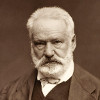“ The free man never acts fraudulently, but always in good faith. ”
Baruch Spinoza, Ethics (1677). copy citation
| Author | Baruch Spinoza |
|---|---|
| Source | Ethics |
| Topic | faith good |
| Date | 1677 |
| Language | English |
| Reference | |
| Note | Translated by R. H. M. Elwes |
| Weblink | http://www.gutenberg.org/files/3800/3800-h/3800-h.htm |
Context
“He who, by reason of his folly, knows not how to return benefits, is not ungrateful, much less he who is not gained over by the gifts of a courtesan to serve her lust, or by a thief to conceal his thefts, or by any similar persons. Contrariwise, such an one shows a constant mind, inasmuch as he cannot by any gifts be corrupted, to his own or the general hurt.
PROP. LXXII. The free man never acts fraudulently, but always in good faith.
Proof.—If it be asked: What should a man's conduct be in a case where he could by breaking faith free himself from the danger of present death? Would not his plan of self—preservation completely persuade him to deceive?”
source



